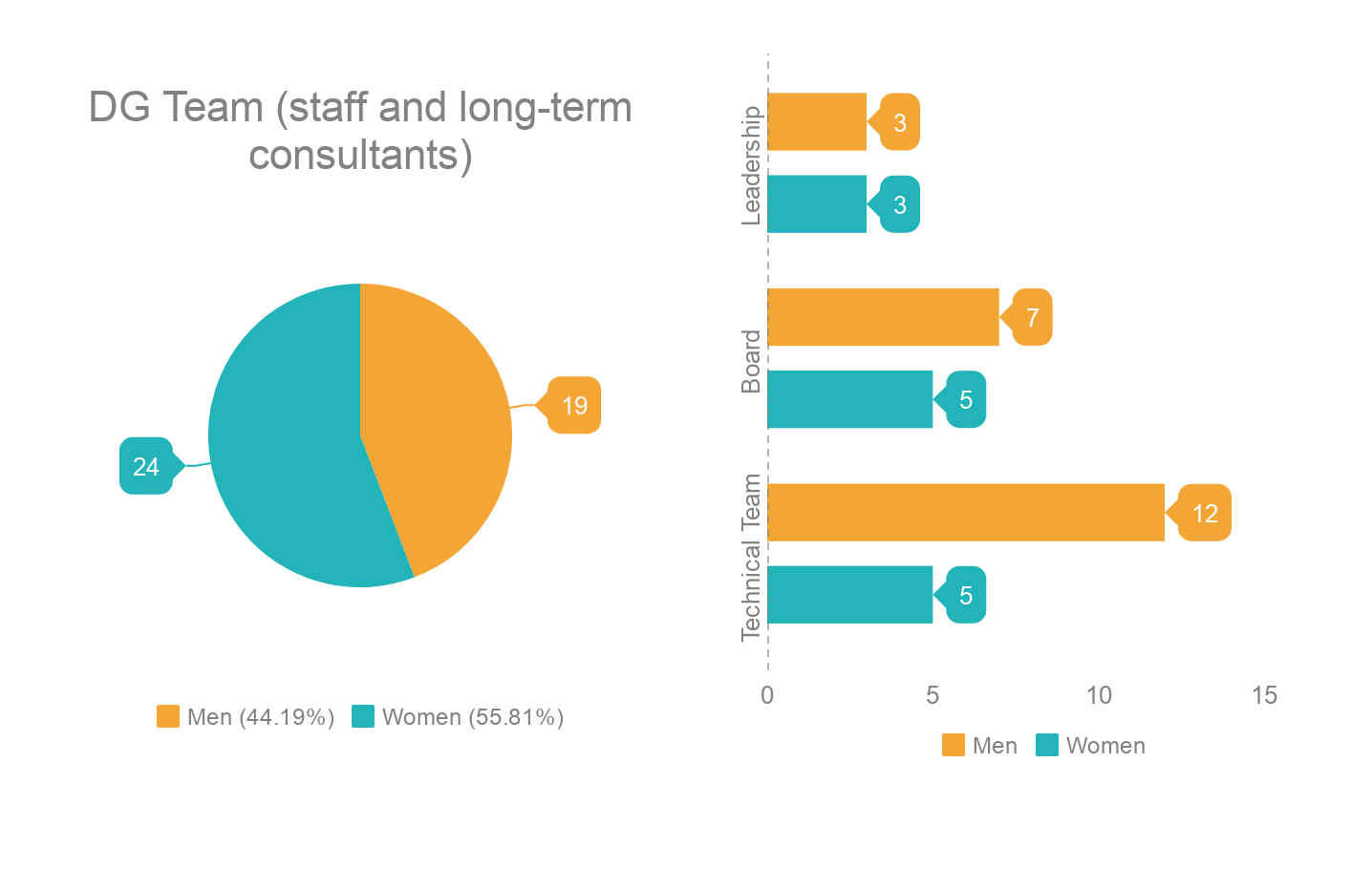International Women’s Day at DG: Our Internal Commitment to Gender Inclusion
This Women’s History Month, we will continue to highlight DG’s cross-cutting support of women across our global programs. But in today’s post, we will focus on how we work internally to improve gender balance, support women in the workplace, and aim to do our part in closing the nonprofit leadership gender gap. We will also highlight areas where there is opportunity for us to improve.
At DG, we’ve long aimed to set a progressive example. In May of 2016, we announced our paid parental leave program, becoming one of the first US-based organizations of our size in our sector to do so.
We’ve also quietly changed how we recruit new team members by introducing tools, such as Textio’s Gender Tone Meter, into our existing hiring processes. We are flagging language that might deter certain candidates, and have built more qualified and diverse applicant pools.
Additionally, DG is taking an active role in bringing more women and individuals from Global South countries onto our Board of Directors, which regularly pushes us to challenge stale thinking, learn, and grow as an organization. By continuing to diversify our Board, we’re working across DG to make diversity a cornerstone of development discourse.
However, we have also heard the call from our partner Open Heroines and others to embed “radical transparency” practices in our inclusivity commitments and actions. We’re looking to Mozilla’s goal-metrics for diversity and inclusion in Open Source software projects. We hope that this will encourage other organizations to do the same.
Research has shown that intentionally prioritizing diversity is necessary to overcome implicit biases in hiring, so calculating and sharing these numbers can help organizations be more aware of where they have work to do, and help us hold each other accountable.
Gender is an important area of focus today and throughout the year, but it is certainly not the only one that creates obstacles to opportunity. We’re beginning here by sharing our gender demographics, but we are also working to promote inclusivity for other underrepresented groups, with more transparency indicators for ethnicity, race, and LMIC country representation to come. Diversity matters and we aim to practice those values when hiring — and to drive the conversation so that other organizations do, too.
Unsurprisingly, the area we have the most room to improve the gender balance is on our technical team, which consists of developers, scrum masters, and quality assurance testers. The technical field has historically had barriers to entry for women, and it is one where we can aim to do better.
Below is DG’s gender breakdown, across our staff, consultants, leadership, and Board of Directors.

Share This Post
Related from our library

How useful is AI for development? Three things we learned from conversations with development experts
The development world is buzzing with excitement over the idea that new and emerging applications of artificial intelligence (AI) can supercharge economic growth, accelerate climate change mitigation, improve healthcare in rural areas, reduce inequalities, and more. But what does this look like in real life?

The Future of Technology Governance and Global Development: Why DG Brought DataReady In-house
DG is excited to announce we now have more robust data governance advisory services with the recent integration of DataReady.

At a Glance | Tracking Climate Finance in Africa: Political and Technical Insights on Building Sustainable Digital Public Goods
In order to combat the effects of climate change, financing is needed to fund effective climate fighting strategies. Our white paper, “Tracking Climate Finance in Africa: Political and Technical Insights on Building Sustainable Digital Public Goods,” explores the importance of climate finance tracking, common barriers to establishing climate finance tracking systems, and five insights on developing climate finance tracking systems.